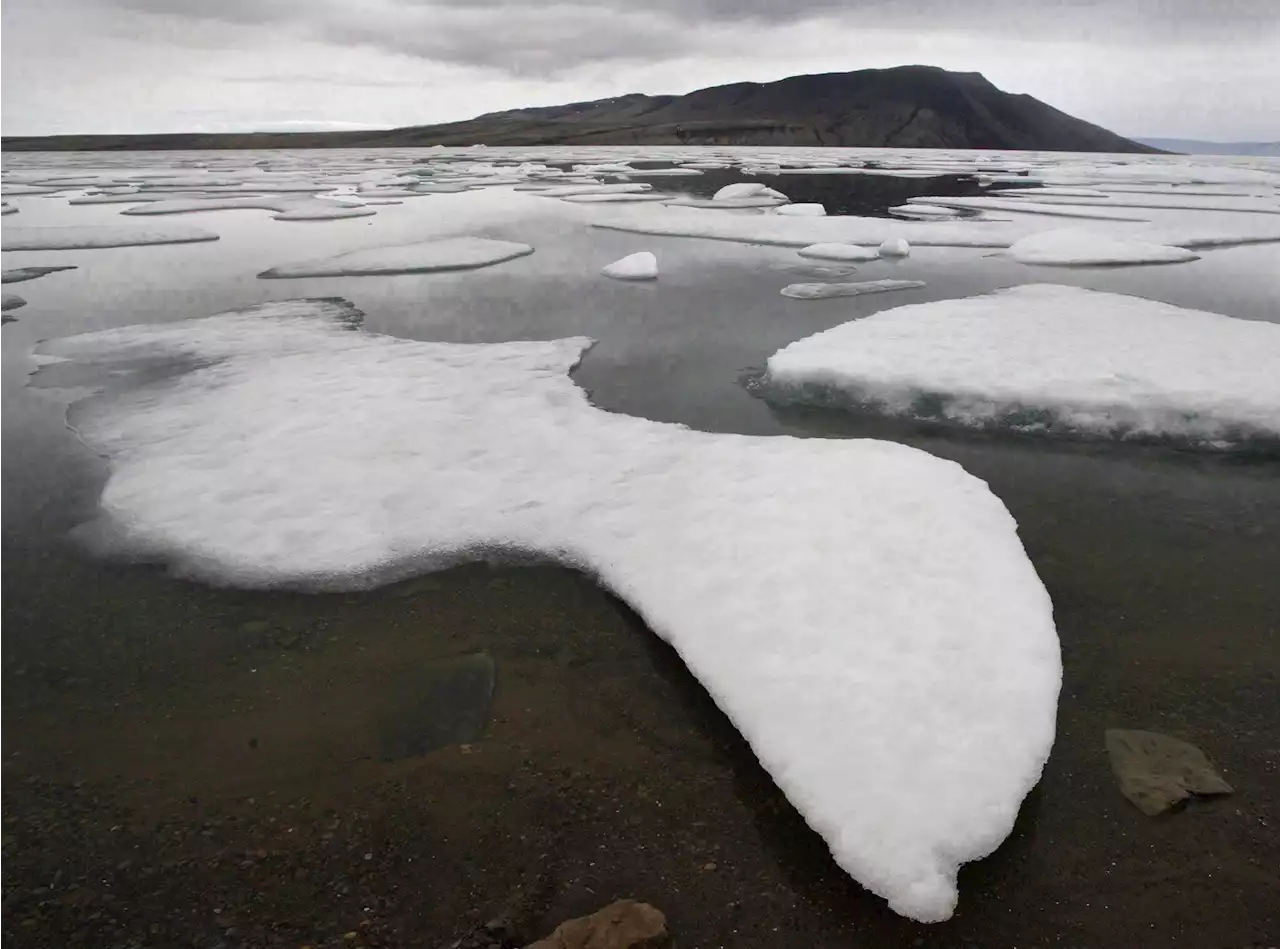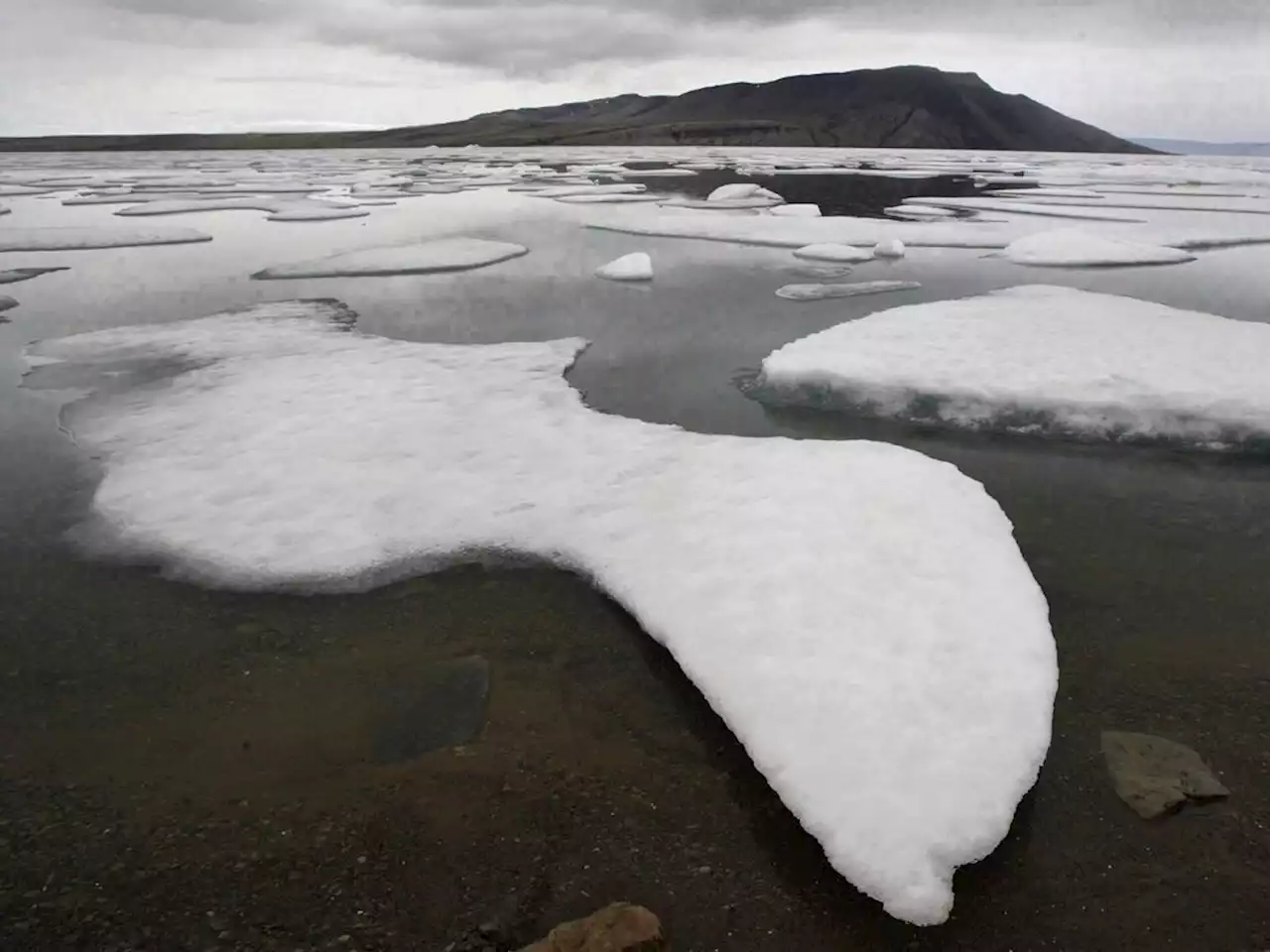While the Arctic is better known for blankets of snow than rain clouds, new research suggests the number of rainy days in the region will roughly double by the end of this century.
The study, published in the American Geophysical Union journal Earth's Future, used climate modelling to predict changes in precipitation under a high level of greenhouse gas emissions from 2015 to 2100. It found that not only will there be more rainfall in the Arctic by 2100, it will occur earlier in the spring and expand further toward the center of the Arctic Ocean and inland Greenland.
The study's authors, researchers from China and the Netherlands, said more frequent and intense rainfall in the Arctic is expected to increase permafrost melt, releasing large amounts of greenhouse gases, as well as reduce snow cover, and speed up sea-ice loss. "The impacts can extend through generations," he said, noting it can lead to increased calf mortality. "These are pretty big effects and the real concern is that we will see more of these as the climate change occurs."
The study found the predicted precipitation changes are largely due to rapid warming in the Arctic, which is heating up three times faster than the global average. The increase in total precipitation was also a contributing factor.Michelle McCrystall is a post-doctoral researcher with the University of Manitoba's Centre for Earth Observation Science.
Philippines Latest News, Philippines Headlines
Similar News:You can also read news stories similar to this one that we have collected from other news sources.
 'Arrival of a new Arctic': Study predicts Arctic rainy days will double by 2100While the Arctic is better known for blankets of snow than rain clouds, new research suggests the number of rainy days in the region will roughly double by the end of this century.
'Arrival of a new Arctic': Study predicts Arctic rainy days will double by 2100While the Arctic is better known for blankets of snow than rain clouds, new research suggests the number of rainy days in the region will roughly double by the end of this century.
Read more »
 'Arrival of a new Arctic': Study predicts Arctic rainy days will double by 2100While the Arctic is better known for blankets of snow than rain clouds, new research suggests the number of rainy days in the region will roughly double by the end of this century.
'Arrival of a new Arctic': Study predicts Arctic rainy days will double by 2100While the Arctic is better known for blankets of snow than rain clouds, new research suggests the number of rainy days in the region will roughly double by the end of this century.
Read more »
 'Arrival of a new Arctic': Study predicts Arctic rainy days will double by 2100The study found the predicted precipitation changes are largely due to rapid warming in the Arctic, which is heating up three times faster than the global…
'Arrival of a new Arctic': Study predicts Arctic rainy days will double by 2100The study found the predicted precipitation changes are largely due to rapid warming in the Arctic, which is heating up three times faster than the global…
Read more »
 'Arrival of a new Arctic': Study predicts Arctic rainy days will double by 2100The study found the predicted precipitation changes are largely due to rapid warming in the Arctic, which is heating up three times faster than the global…
'Arrival of a new Arctic': Study predicts Arctic rainy days will double by 2100The study found the predicted precipitation changes are largely due to rapid warming in the Arctic, which is heating up three times faster than the global…
Read more »
 'Arrival of a new Arctic': Study predicts Arctic rainy days will double by 2100While the Arctic is better known for blankets of snow than rain clouds, new research suggests the number of rainy days in the region will roughly double by the end of this century.
'Arrival of a new Arctic': Study predicts Arctic rainy days will double by 2100While the Arctic is better known for blankets of snow than rain clouds, new research suggests the number of rainy days in the region will roughly double by the end of this century.
Read more »
 'Arrival of a new Arctic': Study predicts Arctic rainy days will double by 2100While the Arctic is better known for blankets of snow than rain clouds, new research suggests the number of rainy days in the region will roughly double by the end of this century.
'Arrival of a new Arctic': Study predicts Arctic rainy days will double by 2100While the Arctic is better known for blankets of snow than rain clouds, new research suggests the number of rainy days in the region will roughly double by the end of this century.
Read more »
